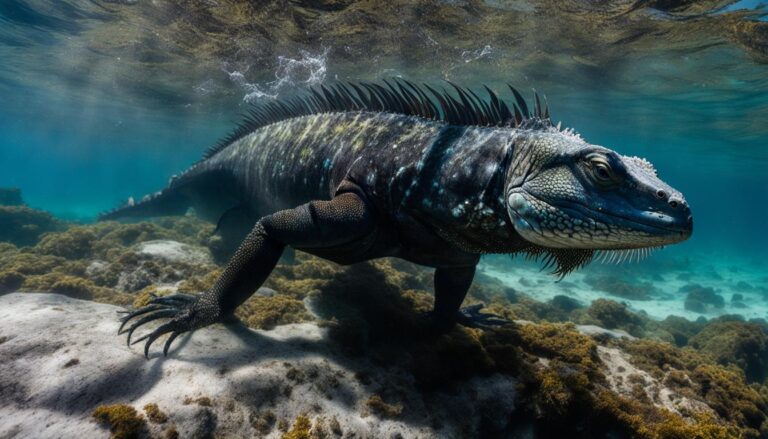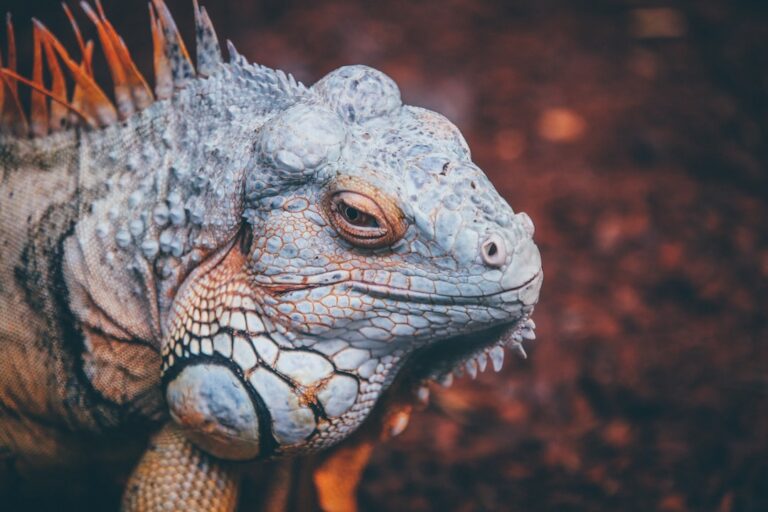Do Iguanas Bond with Their Owners?
Iguanas are fascinating reptiles that have become popular pets for many people. They are known for their unique appearance, with their long tails, spiky crests, and vibrant colors. Iguanas can make great pets for those who are willing to put in the time and effort to properly care for them. However, owning an iguana also comes with its challenges.
One of the benefits of owning an iguana is that they can be very rewarding pets. They have a long lifespan, with some iguanas living up to 20 years or more. This means that if you are willing to make a long-term commitment, you can enjoy the companionship of your iguana for many years. Iguanas can also be very interactive pets, and with proper handling and socialization, they can become quite tame and friendly.
However, owning an iguana also comes with its challenges. Iguanas require specific care and attention to thrive in captivity. They need a large enclosure with proper heating and lighting, a balanced diet consisting of fresh fruits and vegetables, and regular veterinary check-ups. Additionally, iguanas can be quite territorial and may display aggressive behavior if they feel threatened or stressed. It is important for potential iguana owners to be aware of these challenges and be prepared to meet the needs of their pet.
Table of Contents
Understanding Iguana Behavior
To effectively bond with your iguana, it is important to understand their natural behavior both in the wild and in captivity. In the wild, iguanas are arboreal creatures, meaning they spend most of their time in trees. They are herbivores and feed on a variety of leaves, flowers, and fruits. They are also known for their territorial behavior, especially during mating season when males may become aggressive towards each other.
In captivity, iguanas may exhibit different behaviors depending on their environment and how they are cared for. Some iguanas may become stressed or anxious if they are not provided with a suitable enclosure or if they are not handled properly. They may display aggressive behavior, such as tail whipping or biting, as a way to defend themselves. Other iguanas may become more docile and friendly with proper handling and socialization.
Common behavioral issues in pet iguanas include aggression, fearfulness, and refusal to eat. These issues can often be attributed to improper care or handling. It is important for iguana owners to provide a suitable environment for their pet, including a spacious enclosure with proper heating and lighting. Regular handling and socialization from a young age can also help prevent behavioral issues and promote a positive bond between the owner and the iguana.
The Concept of Bonding with Iguanas
Bonding with your iguana is an important aspect of pet ownership. It involves developing a strong emotional connection and trust between you and your pet. Bonding with your iguana can have many benefits, both for you and for your pet.
For iguanas, bonding means feeling safe and secure in their environment and with their owner. When an iguana feels bonded to its owner, it is more likely to display friendly and relaxed behavior. It may seek out interaction with its owner, such as climbing onto their shoulder or sitting on their lap. Bonding can also help reduce stress and anxiety in iguanas, leading to improved overall well-being.
For owners, bonding with an iguana can be a rewarding experience. It allows you to develop a deeper understanding of your pet’s needs and behavior. Bonding can also enhance the enjoyment of owning an iguana, as you develop a strong emotional connection with your pet.
Factors That Affect Iguana Bonding
Several factors can influence the bond between an iguana and its owner. These include the age, gender, and personality of the iguana, as well as the behavior and attitude of the owner, and the environment and living conditions of the iguana.
The age of the iguana can play a role in bonding. Younger iguanas are generally more adaptable and may be more open to forming a bond with their owner. Older iguanas may take longer to adjust to a new environment and may be more set in their ways. However, with patience and consistent care, older iguanas can also form strong bonds with their owners.
The gender of the iguana can also affect bonding. Male iguanas are generally more territorial and may be more prone to aggressive behavior. Female iguanas, on the other hand, may be more docile and easier to handle. However, it is important to note that individual personalities can vary greatly among iguanas, regardless of gender.
The behavior and attitude of the owner can also have a significant impact on bonding. It is important for owners to approach their iguana with patience, respect, and consistency. Harsh or inconsistent handling can lead to fear or aggression in the iguana. Positive reinforcement, such as offering treats or praise for good behavior, can help build trust and strengthen the bond between owner and pet.
The environment and living conditions of the iguana are also important factors in bonding. Iguanas require a spacious enclosure with proper heating and lighting to thrive. They also need a balanced diet consisting of fresh fruits and vegetables. Providing a suitable environment and meeting the basic needs of your iguana can help create a sense of security and trust.
The Role of Socialization in Iguana Bonding
Socialization is an important aspect of bonding with your iguana. It involves exposing your pet to different people, animals, and environments from a young age to help them become comfortable and confident in various situations.
Socializing your iguana from a young age is crucial for their overall well-being and can help prevent behavioral issues. It can also help them develop a positive bond with their owner. By exposing your iguana to different people, animals, and environments, you are teaching them that new experiences are not something to be feared.
Proper socialization involves gradually introducing your iguana to new experiences in a controlled and positive manner. This can include handling your iguana gently and regularly, allowing them to interact with other people and animals, and exposing them to different sounds, smells, and environments. It is important to monitor your iguana’s behavior during socialization and provide positive reinforcement for calm and relaxed behavior.
A well-socialized iguana is more likely to feel comfortable and secure in its environment. It is also more likely to form a strong bond with its owner. Socialization can help reduce fear and anxiety in iguanas, leading to improved overall well-being.
The Importance of Consistency in Iguana Care
Consistency in care is crucial for building a strong bond with your iguana. Iguanas thrive on routine and predictability, so it is important to establish a consistent feeding and cleaning schedule.
Feeding your iguana a balanced diet consisting of fresh fruits and vegetables is essential for their health and well-being. It is important to provide a variety of foods to ensure they receive all the necessary nutrients. Feeding your iguana at the same time each day can help establish a routine and create a sense of security.
Cleaning your iguana’s enclosure regularly is also important for their health and well-being. Iguanas are prone to respiratory infections, so it is important to keep their enclosure clean and free of bacteria. Regular cleaning also helps prevent odors and keeps the environment comfortable for your pet.
Consistency in handling and interaction is also important for bonding with your iguana. Handling your iguana gently and regularly can help them become accustomed to human contact and build trust. It is important to approach your iguana calmly and confidently, and to provide positive reinforcement for good behavior.
How to Build Trust with Your Iguana
Building trust with your iguana is a gradual process that requires patience and consistency. Here are some tips for building trust with your iguana:
1. Approach your iguana calmly and confidently. Sudden movements or loud noises can startle them and make them feel threatened.
2. Handle your iguana gently and with respect. Avoid grabbing or restraining them forcefully, as this can cause stress or aggression.
3. Offer treats or praise for good behavior. Positive reinforcement can help build trust and strengthen the bond between you and your iguana.
4. Spend time with your iguana every day. Regular interaction can help them become familiar with you and feel more comfortable in your presence.
5. Respect their boundaries. If your iguana shows signs of stress or discomfort, such as puffing up their body or hissing, give them space and try again later.
6. Be consistent in your care and handling. Iguanas thrive on routine and predictability, so it is important to establish a consistent schedule for feeding, cleaning, and handling.
Signs of Iguana Affection and Attachment
Iguanas may not show affection in the same way that dogs or cats do, but they can still form strong attachments to their owners. Here are some signs that your iguana is attached to you:
1. Seeking physical contact: Your iguana may climb onto your shoulder or sit on your lap when you are near. This is a sign that they feel comfortable and secure in your presence.
2. Relaxing in your presence: A relaxed iguana is a content iguana. If your iguana is calm and at ease when you are around, it is a sign that they trust you and feel safe with you.
3. Following you around: Iguanas are curious creatures and may follow their owners around the room. This is a sign that they enjoy your company and want to be near you.
4. Responding to your voice: Iguanas can recognize their owner’s voice and may respond to it by turning their head or moving towards the sound. This is a sign that they are attentive to you and enjoy hearing your voice.
5. Displaying relaxed body language: A relaxed iguana will have a soft body, with their tail hanging down and their crest flat against their back. This is a sign that they are comfortable and at ease in your presence.
It is important to remember that every iguana is different, and they may show affection in different ways. Some iguanas may be more reserved and show affection through subtle behaviors, while others may be more outgoing and seek out physical contact. It is important to pay attention to your iguana’s individual behavior and respond accordingly.
Common Misconceptions About Iguana Bonding
There are several common misconceptions about bonding with iguanas that can hinder the development of a strong bond between owner and pet. Here are some of these misconceptions:
1. Iguanas are solitary animals: While it is true that iguanas are generally solitary animals in the wild, they can still form strong bonds with their owners in captivity. With proper care, handling, and socialization, iguanas can become tame and friendly pets.
2. Iguanas do not need social interaction: While iguanas may not require social interaction in the same way that dogs or cats do, they can still benefit from regular interaction with their owners. Socialization and handling can help prevent behavioral issues and promote a positive bond between owner and pet.
3. Iguanas are aggressive and cannot be tamed: While iguanas can display aggressive behavior, especially if they feel threatened or stressed, they can also become quite tame with proper care and handling. It is important to approach your iguana calmly and confidently, and to provide positive reinforcement for good behavior.
4. Iguanas do not form emotional attachments: While iguanas may not show affection in the same way that dogs or cats do, they can still form strong emotional attachments to their owners. They may seek out physical contact, respond to their owner’s voice, and display relaxed body language when their owner is present.
It is important to approach bonding with an open mind and to be willing to put in the time and effort to develop a strong bond with your iguana. With patience, consistency, and positive reinforcement, you can build a strong relationship with your pet.
Building a Strong Relationship with Your Iguana
Building a strong bond with your iguana takes time, patience, and consistency. It involves understanding their natural behavior, providing a suitable environment, socializing them from a young age, and approaching them with respect and kindness.
Bonding with your iguana can have many benefits, both for you and for your pet. It can improve their overall well-being, reduce stress and anxiety, and enhance the enjoyment of owning an iguana. It can also deepen your understanding of your pet’s needs and behavior.
Remember that every iguana is unique, and it may take time for them to feel comfortable and secure in their environment. Be patient, be consistent, and be willing to learn and grow with your iguana as a pet. With time and effort, you can build a strong and rewarding relationship with your iguana.
If you’re interested in learning more about iguanas and their behavior, you might also enjoy reading the article “Do Iguanas Have Mammary Glands?” on Reptile Friend’s website. This informative piece explores the unique characteristics of iguanas and delves into the fascinating topic of whether or not these reptiles possess mammary glands. To find out more, click here.







